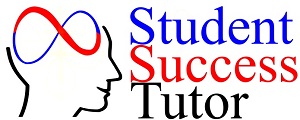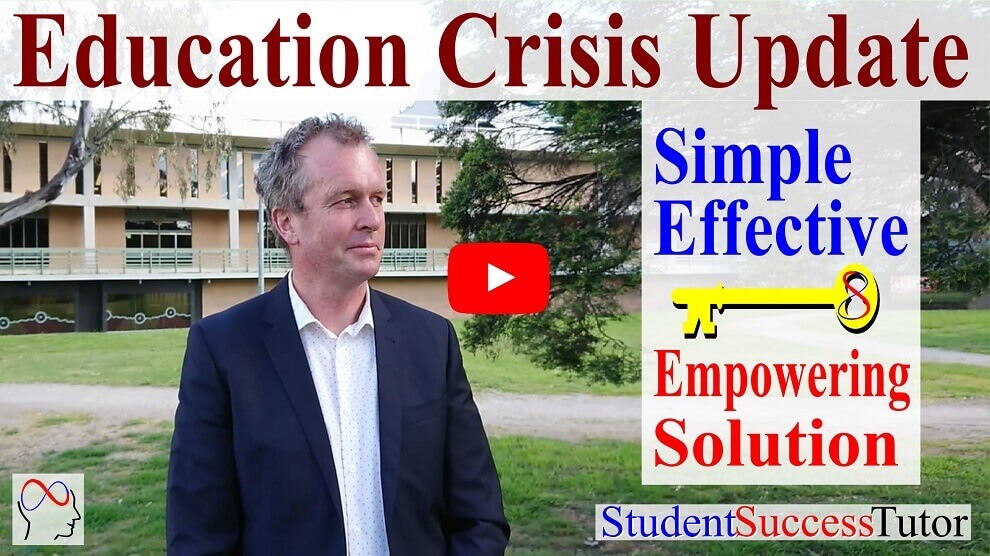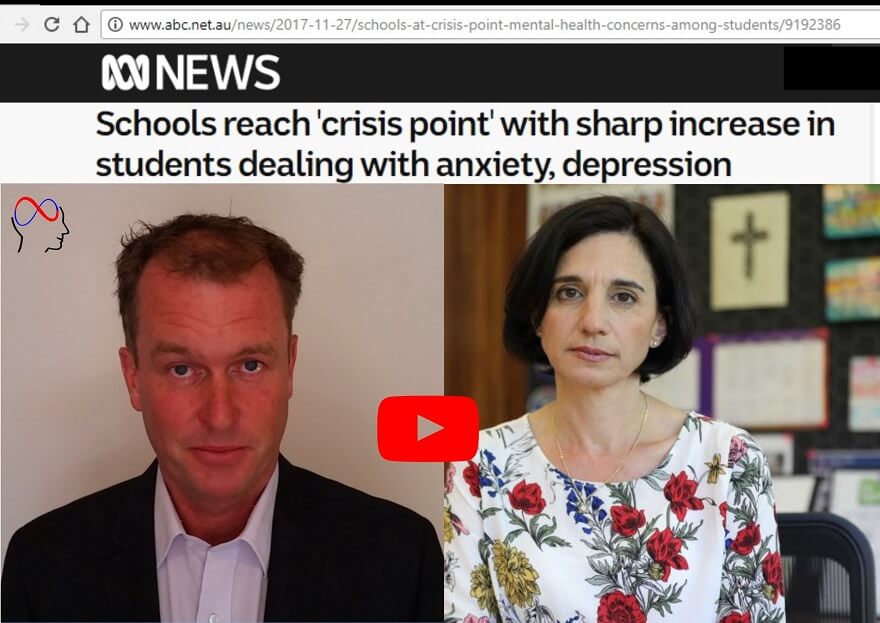Pandemic worsens the Education Crisis
Normality smashed deepening the education crisis
Prior to 2020 educational systems worldwide tended to do little to assist students with the core learning and life skills. This left a significant percentage of students struggling. Even the schools that complained publicly were doing very little about it. I know this as I contacted them to discuss these issues and solutions. Educational outcomes and resolution of the issues were basically transferred to the parents and the student. What little resources were given were not enough to change unconscious habits and to develop a culture of easeful learning.
My role model Christine Ward saw how educational institutions around the planet she was consulting with also slid backward into the old educational paradigm of left brain read-write learning. After 30 years of promoting better learning and authoring books Christine saw the resistance grow within all but a few educational institutions. Technology use also played a role in this as it is simply not brain and neurology friendly.
Then the pandemic hit. The issues and impacts were then multiplied, as we all now know too well.
School Education Crisis (2017-2019)
Up to 30% of Students under mental stress
The below was the historical situation that was happening before the pandemic shut schools with lockdowns and home learning. What is mentioned has not changed the pandemic just added more issues:
In 2017 according to School Principals(1) in national news articles schools are facing a crisis where up to 30% of their students are under mental strain with anxiety, depression, fear of failure, bullying and 'the need to be perfect' taking a toll on learning.
This STOPS efficient learning, it impacts grades, decreases motivation and damages emotional well-being. Furthermore, it corrupts a students capacity to face change confidently in future employment transitions. How a student deals with school is how they tend to behave for the rest of their life. Education is the foundation of learning, behaviour and life path.
During their school years a student sets their behaviour patterns into either self-driven (internal motivation) or peer driven (externally or socially influenced) ways of living. These behaviour patterns set up how they will function for the rest of their life. This is far more important than subject content, yet little resources are given to it. Framework pillar No7 Structure is how a person operates and flexes with the changing situations.
Is your daughter or son one of those 30% mentioned in that article?
Most schools currently don't have the resources to address these issues thoroughly.
Students and parents will have to solve this issue for themselves; but how?
Issues the schools can't control
There are few resources to teach and encourage techniques that assist stress reduction. Neither is the philosophy of trying and failing as being healthy and needed for integrated learning.
Schools (Australia and New Zealand at least) face rigorous compliance standards by bureaucratic government educational standards (eg: AQF in Australia). This forces 'left brain only' assessment methods and adds a massive administrative burden on any educational or training provider. Resources that could otherwise be used to grow competent students.
It is up to schools to find extra funding to help this 30% of students under mental and emotional stress. Schools are at a Crisis Point(1) as stated by Principals in ABC news articles.
Issues that impact grades, motivation, stress, anxiety, depression and unwanted behaviours may be out of the education context. This includes medical, pre-existing personal conditions, family, friends and social media impacts. Some of these issues cannot be resolved by schools but the effects on behaviour and performance impact the school and classroom.
Simple Solutions to a big problem
In brief, many of these issues can be resolved quite easily through knowing how to learn, motivate and State Change. State Changing in the context of education is a two step process of 1. Moving from a distracted and unfocused state that is bad for study into 2. A relaxed whole brain state that maximises learning and performance. Once these basic skill sets are mastered a student can use much more of their potential and feel good about themselves and their studies. When a student feels good because they are relaxed and achieving, it's hard to be anxious or depressed about school.
The 8 core coaching sessions build the necessary foundation for any person to study successfully. These skill sets can then be applied to other areas of a student's life. To use a metaphor; once you learn to ride the bicycle of learning a subject, you can then win the race of achieving in life. The core skills set is already learned and being practiced with the context of study. Hence pillar No7 is Structure, as the structure can then be applied in any context of work, home, relationships and sport.
The study skills I coach involve a range of techniques that builds competency at all levels, mental, emotional, motivational and neurological. These skills and abilities are mostly learned through following simple techniques. If a student uses the rules of evidence (pillar No3) to check the steps are done, then improved new habits will start to grow.
It is all about right habit formation within the unconscious mind (pillar No5). Right habit means the right outcome. Bad habit is always a lacking outcome.
After the initial 8 core sessions we focus on building these new unconscious skills. These need to be practiced consciously to build the natural right habit. The student can then further enhance their memory, emotional intelligence and motivation to all areas of their life. In fact, photographic memory is possible for most people if they are trained and skilled in the process. A stable study routine and determination (motivation and want) are required to train the mind to be photographic. Yes, it does take effort but it is possible if the application of these memory maximising techniques are used.
An empowered learner can self teach, self-monitor and self-motivate so they can change what they don't like. The fundamental skill of noticing if one is in the Learning State lays a concrete foundation of applying the same principles to all life. My mission and goal of academic life coaching are to take students to this empowered place. This sparks that joy of learning that applies to all of life's circumstances.
Naturally, some of life's issues are more complex and deeply embedded in the psychology of the individual. These issues will require time to shift with appropriate guidance and feedback.
My observations will be given to the student directly for them to think about and respond to. Recommendations will be shared with parents in the parent feedback calls. It is important to coordinate and make a pathway to success happen.
Basic 'educationally related' exam stress, study & exam anxiety decrease quickly. Students are taught via multiple approaches to enter the Learning State. Then it's easy, fast, efficient for the information to go in, be processed and have good answers formulated in assessments.
This academic life coaching process creates accountability, feedback and positive motivation influences so the study routine is formed and actioned. This will increase grades, motivation and improve the student's behaviour as they are happier within themselves.
As a parent there are a few simple questions to ask yourself:
✔ Does your daughter or son know how to study properly?
✔ Do they have a study routine?
✔ Do they actually get the study done?
✔ Do they make the most of class time, which cuts back on home study?
✔ Do they know how to self-motivate and chase what they want?
✔ Do they know how to shrug off stress and relationship tensions?
Bullying was also mentioned in the article(1). This is a serious topic so there is a separate page and video on that.
Make contact if you want to make positive improvements in your son or daughter's studies and experience of school life.
Book a session now. Let's discuss an action plan
Individual online tutoring is limited to 12 students a week.
Book here. World-wide online.


